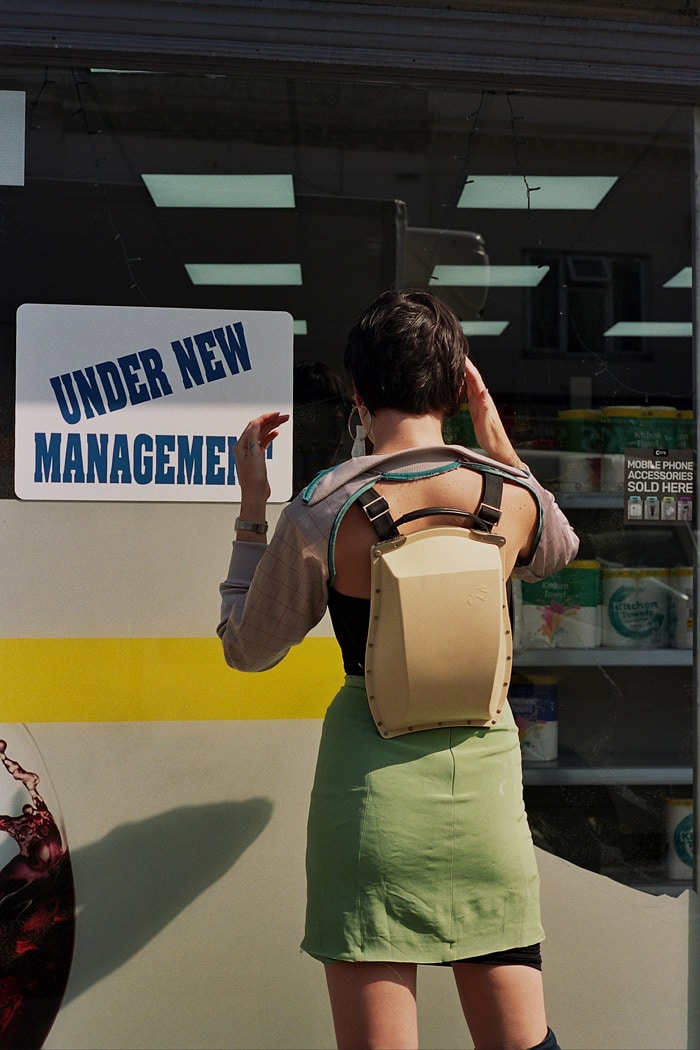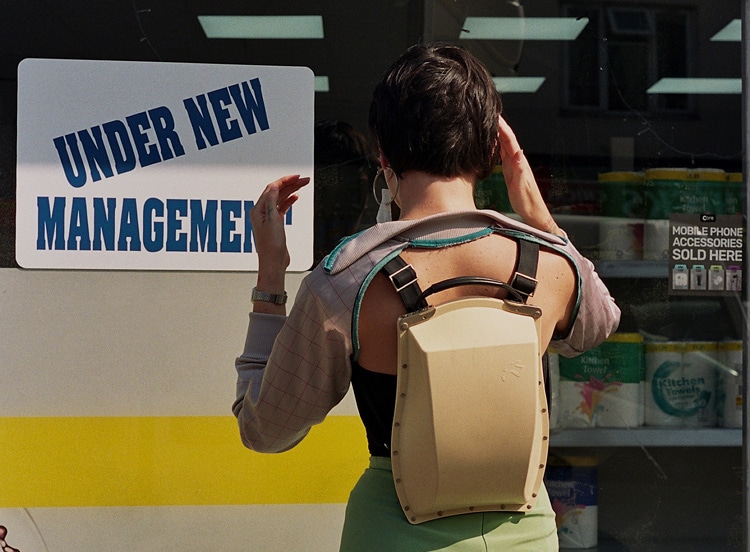Extinction Rebellion’s call to cancel LFW divides the fashion industry
Amidst an environmental crisis, environmental activist group Extinction Rebellion is calling for the cancellation of London Fashion Week. But what would cancelling London Fashion Week really achieve, and how would it affect independent designers not participating in mass production?
The fashion industry is one of the biggest polluters impacting our planet right now, and it is not looking good. There is an endless cycle of clothes ending up in landfills annually (over a million tonnes of which are from the U.K. alone), the industry produces around 10 percent of the global greenhouse emissions, and chemical dyes polluting water produce about 20 percent of water waste yearly. This industry is predicted to grow by 63 percent by 2030, and the textile industry is expected to produce 25 percent of all carbon emissions by 2050.
The Swedish Fashion Council cancelled the upcoming Stockholm Fashion Week, and Extinction Rebellion demands the British Fashion Council do the same. By planning creative disruptive actions throughout the event, with a funeral commemorating the loss of life due to climate change, the organisation hopes to bring our awareness to just how harmful the fashion industry is. A number of companies within the industry are also taking a stand to boycott LFW in various ways—London-based fashion magazine Bricks, as an example, decided not to cover LFW this year.
Here is the thing, though, London Fashion Week is a platform that showcases a number of independent and emerging talent, many of whom don’t even have the means to mass-produce if they wanted to (then we would be having an entirely different conversation). Many designers each year advocate awareness for sustainability and choose to use recycled fabrics and environmentally friendly textiles. That is not to say that LFW only supports independent designers, with big companies like Burberry participating who are far from being sustainable, but the real evil is the fast fashion industry.
It is, of course, important to note that without high end fashion, fast fashion would never exist in the first place. Emerging in the 90s, fast fashion promotes rapid and mass production of cheap clothing to meet the most recent fashion trends. These fashion trends are inspired by high end fashion designers and most independent designers, and it is understandable why people choose to purchase fast fashion. In the real world, who can actually afford to splash out hundreds or thousands of pounds per clothing item? It is so unrealistic and exclusive. Plus, in the age of Instagram culture, where everybody feels they have to show off how stylish they are to their followers, overconsumption is inevitable.
By all means, this needs to change. We do engage in constant, mindless consumption, and so many of us already have more clothing than we need. But fast fashion brands don’t showcase their work during LFW—independent designers do. So is it fair to punish them by taking away their platform? Fashion is a form of art, and LFW is equivalent to Frieze Art Fair or the Venice Biennale of fashion. Many designers showcasing at LFW have worked incredibly hard to get where they are, and we simply cannot take this away from them.
Don’t get me wrong, the fashion industry does need to be regulated, ASAP. In an interview with Screen Shot, Fashion Revolution’s founder and creative director Orsola de Castro claims she is “against” canceling fashion week, saying that we need to “redesign them rather than shutting them down.” De Castro believes that, “As far as being disruptive, we need to be constructive at the same time.”

Taking into consideration how much power and energy are invested in the production of these shows: the number of flights needed to transport models, editors, influencers, buyers, and garments, greener alternatives must be found. Designers showcasing twice a year is certainly excessive, and it would be better have all fashion weeks take place once a year maximum. Recycling previous collections into their new season should also be a must—yes, many independent designers already use recycled materials, but this can be elevated.
Fashion Open Studio is also a great alternative to this, which is a week of presentations, talks, openings, and workshops shining a light on emerging designers. “We need to use Fashion Week as a place to discuss conspicuous consumption, to discuss innovation, to discuss new parameters,” says de Castro—and rightfully so. Re-showcasing work from previous seasons would also be incredibly beneficial. The second hand fashion market is set to grow bigger than the high end and luxury ones by 2022, which is great news and could help support emerging talent instead of forcing them to keep up with the pressures of creating new work and being relevant.
Let’s all start investing into second hand and thrift shopping as our go-to option. Let’s push Instagram Influencers and celebrities to promote second hand clothing over brand partnerships with fast fashion brands. We could even go as far as demanding a new law that would prohibit the promotion of fast fashion brands or brands who use unethical resources when creating clothing. We need to reconsider how we, as consumers, view fashion once and for all, and start appreciating high end fashion as an art form rather than try and replicate it. But, please, let’s not punish emerging talented artists who have worked through blood and sweat to be able to express themselves through fashion.





